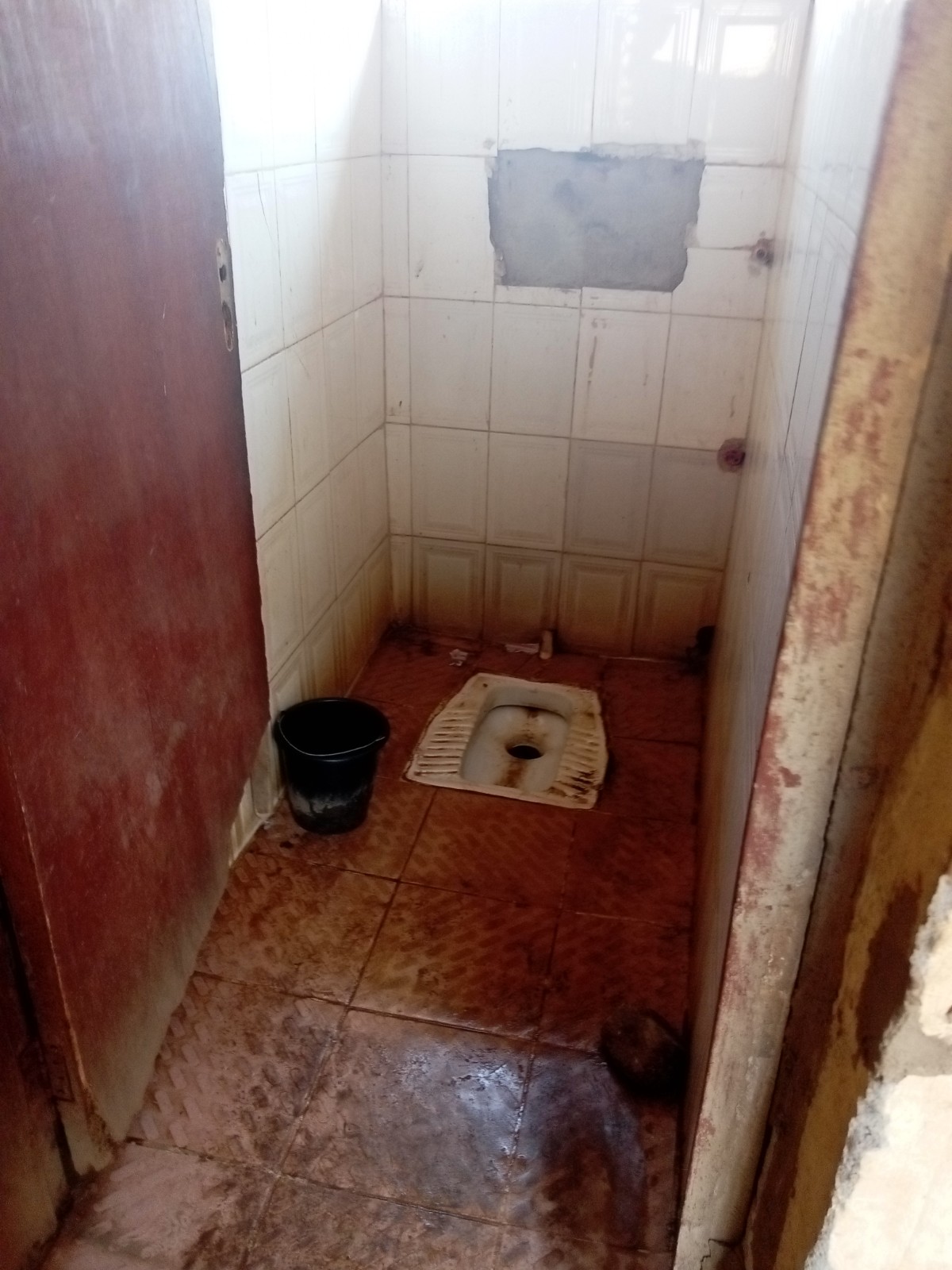
By Esther David, Staff Writer
Introduction
Mandate Public Toilet is situated within an ultra-modern foodstuff wholesale market located

at Olorunshogo road, Ilorin, Kwara state, Nigeria. Hearing the name of the toilet, one would have thought the public convenience has the mandate to provide safe toilet and handwashing facilities for thousands of sellers and buyers in the leading market. The reverse seems to be the case, as the public toilet collects human waste and distributes germs, bad odours, and toilet diseases through its unsanitary conditions.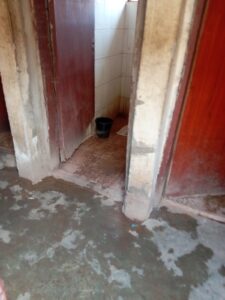
Such public toilets are not peculiar to Ilorin. It is very common in Nigeria, where 48 million people are still defecating in the open. Arguably, this figure would not have been so high if there were safe and improved public toilets in public places like markets, motor parks, and schools.
No one can stop the urge to ease oneself. Excreting human waste is natural, normal and often comes without much warning. No one can stop the urge to ease oneself. When the urge to urinate or defecate arises, it should be conveniently responded to with human dignity.
Presently, public toilet facilities are not available in most places in Nigeria. Where they 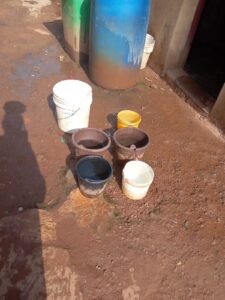 exist, they are poorly maintained.
exist, they are poorly maintained.
The toilet cubicles are stinking; the environment is unsanitary; the air is full of odour, and the water for handwashing is almost unavailable, unclean, and inadequate.
Using public toilets in Nigeria can be an embarrassment as it may affect your dignity.
eWash visited Mandate Market in Ilorin, Kwara State, to observe the problems facing the users of public toilets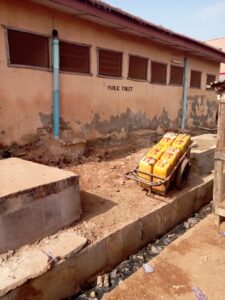
Mandate market is an ultra-modern foodstuff wholesale market located at Olorunshogo road, Ilorin, Kwara state, Nigeria. The Market Association built and managed the public toilet in the market.
Unaffordability
The major challenge public toilet users face in this market is its high cost. The price of urinating in this market is fifty naira per person, while people pay one hundred naira per person for defecation. This is unaffordable to some of the users, especially the Hausa traders.
A Hausa man who manages the toilet speaks: ‘the toilet fee has just been increased to a hundred naira for defecating, and fifty naira per person for urine, and people cannot afford the new price’.
Another trader said: ‘the increment in the toilet fee had caused more harm than good as some Hausa men cannot afford the amount and defecate in the gutter, which smells around the environment’. Previously, the user fee was fifty naira for defecating and twenty for passing urine.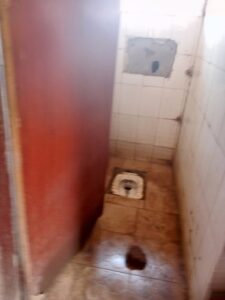
Bad odour/Unsanitary conditions
It was also observed that the public toilet is unsanitary. Mariam, whose shop is opposite the public toilet, said that the smell of the toilet is discomforting, while another Alhaji Sheu, a user, advised using disinfectants to curb the bad smell.
However, the toilet Manager, Aboki, said ensuring the toilet is clean is challenging as there is an inadequate water supply.
Gender Sensitivity
The public toilet is also not gender-sensitive, as female users may be prone to infections. Lasooju, who sells at the market, says a lady using such a toilet might contract toilet diseases.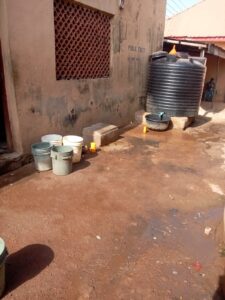
Conclusion
It is enjoined that the authorities at all levels should not ignore such basic needs as toilets as this is part of the measures that promote good sanitation in society
Leave a Reply